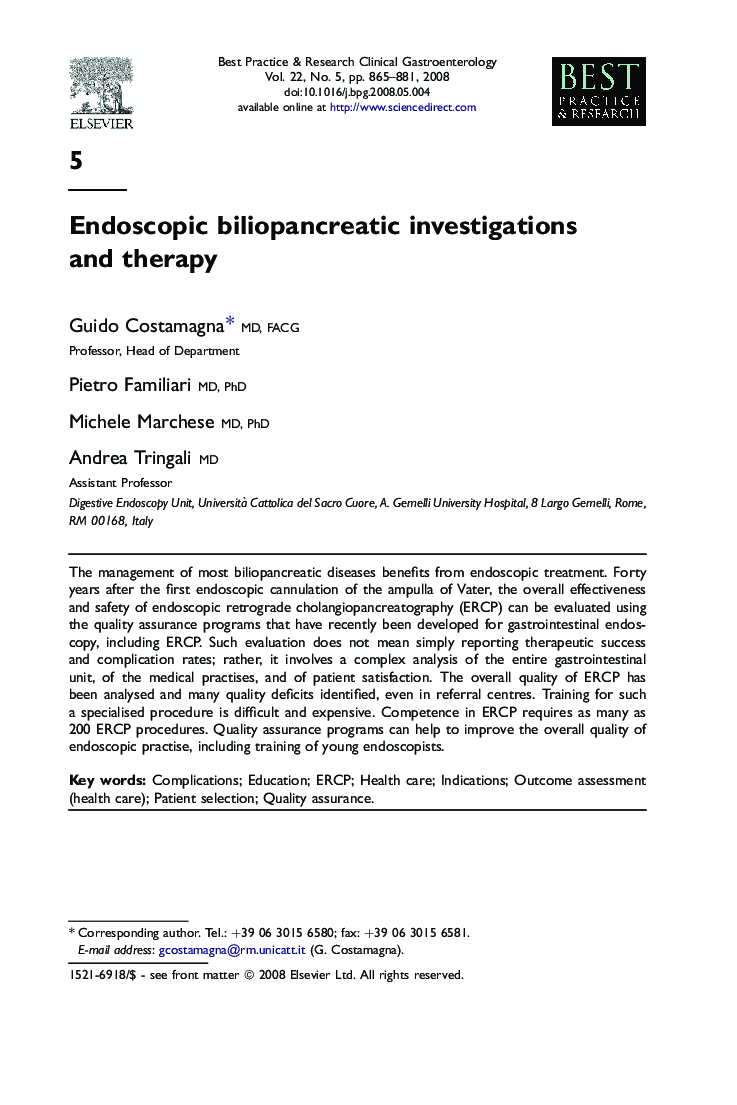| Article ID | Journal | Published Year | Pages | File Type |
|---|---|---|---|---|
| 3254588 | Best Practice & Research Clinical Gastroenterology | 2008 | 17 Pages |
Abstract
The management of most biliopancreatic diseases benefits from endoscopic treatment. Forty years after the first endoscopic cannulation of the ampulla of Vater, the overall effectiveness and safety of endoscopic retrograde cholangiopancreatography (ERCP) can be evaluated using the quality assurance programs that have recently been developed for gastrointestinal endoscopy, including ERCP. Such evaluation does not mean simply reporting therapeutic success and complication rates; rather, it involves a complex analysis of the entire gastrointestinal unit, of the medical practises, and of patient satisfaction. The overall quality of ERCP has been analysed and many quality deficits identified, even in referral centres. Training for such a specialised procedure is difficult and expensive. Competence in ERCP requires as many as 200 ERCP procedures. Quality assurance programs can help to improve the overall quality of endoscopic practise, including training of young endoscopists.
Keywords
Related Topics
Health Sciences
Medicine and Dentistry
Endocrinology, Diabetes and Metabolism
Authors
Guido (Professor, Head of Department), Pietro MD, PhD, Michele MD, PhD, Andrea (Assistant Professor),
